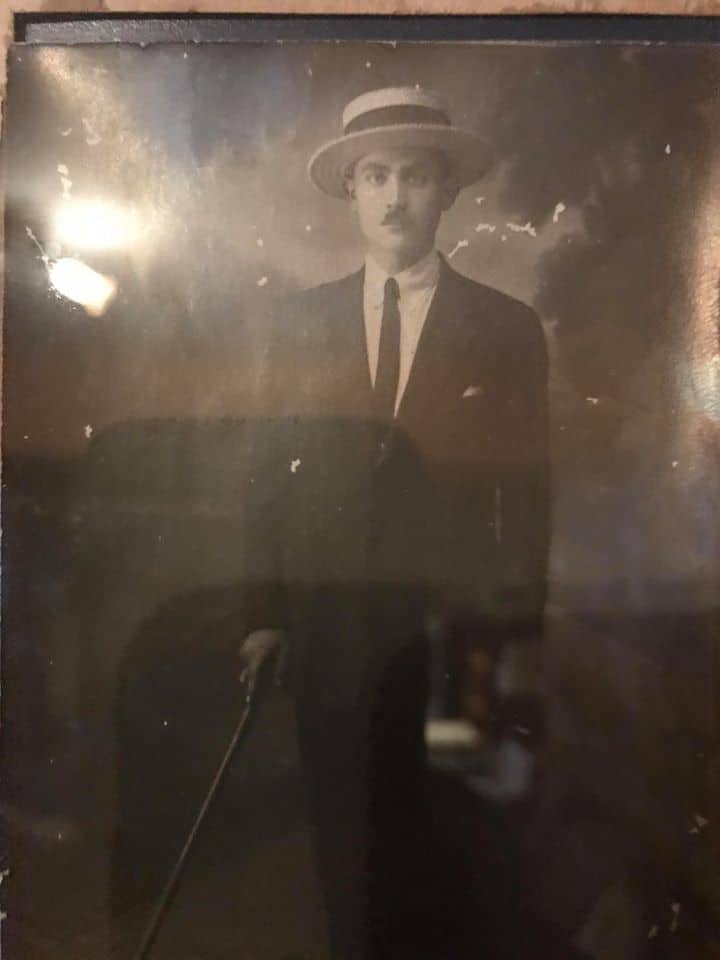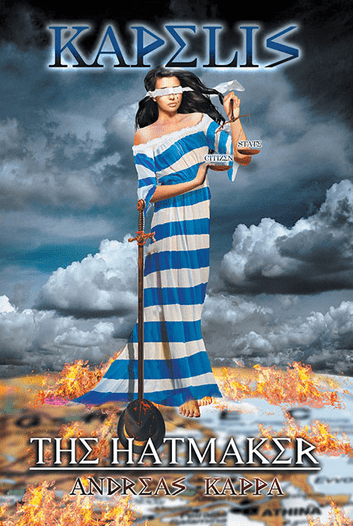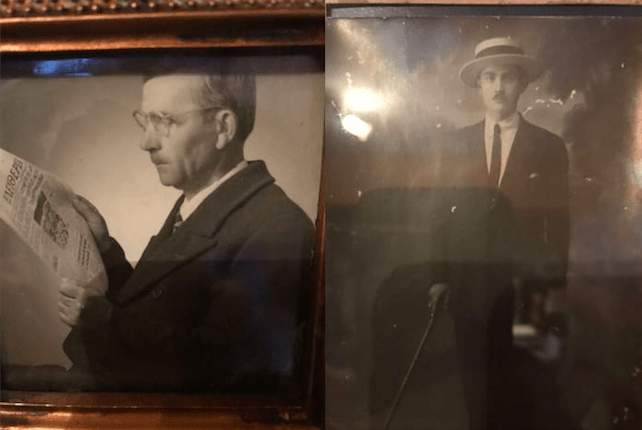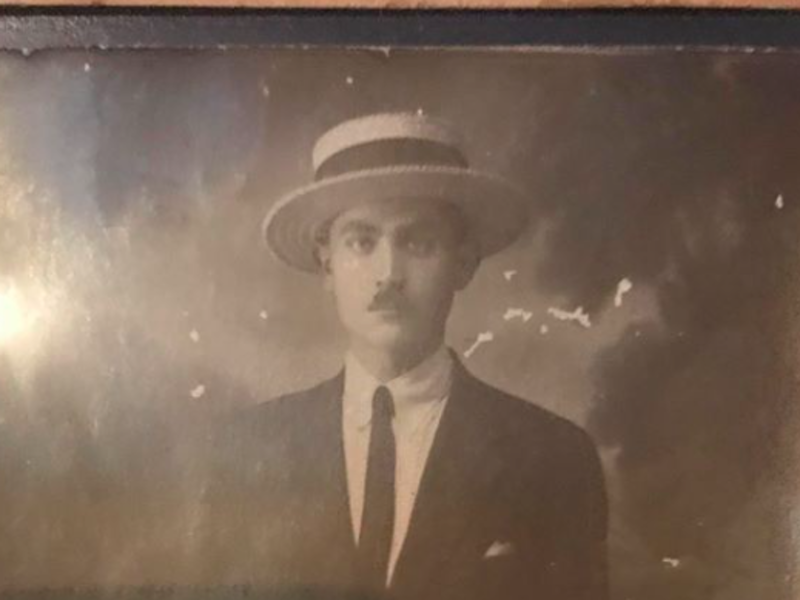Ottoman occupation, two world wars, a civil war, betrayal, secrets, loss, the search for justice. One could be forgiven for thinking these pertained to a plot straight out of Hollywood. Rather, it the true story of Kapelis, a family of hatmakers, lovingly honoured by Andreas Kappa in his book Kapelis The Hatmaker.

Published at the end of 2017 to international acclaim, the book has become a hit with Hellenes and non-Hellenes alike. Readers embarking on the journey of this rich lesson in history, humanity, and morality experience the full spectrum of emotions, including anger, sadness, tears and ultimately a sense of closure. Justice prevails for Kapelis by applying ‘good versus good’ to cure his pain from living through a century of injustices. Kappa has achieved an intoxicating blend of recounting the events of his ancestors beginning in Athens in 1780 when Hellas was still under Ottoman occupation, seemingly effortlessly. The result is a page-turner all the generations are able to enjoy.

Andreas Kappa is everything you would expect from a lineage such as Kapelis. Wise, passionate, an effortless communicator, he was an army officer for years before becoming a barrister. Both professions relevant to the pursuit of serving country and justice, the latter seeing him participate in the Wood Royal Commission among many others. He is a proud Hellene who co-founded the Australian Lawyers Phil-Hellenic Association and has tirelessly raised money for Greece’s disadvantaged. Generous with his time and dedicated to promoting Hellenism, he is also a devoted family man.
Born and raised in Sydney’s inner west, Kappa describes his connection with Hellas when growing up as a land very far away that had sent its citizens away because it could not keep its family together. He was made to go to Greek School twice a week after school, learning the language, as he puts it “under protest” but like so many of his generation he tried to distance himself from his Hellenic culture and assimilate as an Aussie to avoid the racism that was prevalent in Australian society at the time.

Kappa first became aware of the stories entrenched in his ancestry in 1980 when travelling to Greece for the first time as a 20-year-old. He did not tell his relatives in Greece that he was going so he could surprise them. “When I arrived at the village in Ano Diakofto tis Vrostenas in the province of Ahaias in the north-western region of Hellas, I went up a small path from the bus stop to the house passing two quite fierce looking hunting dogs. As I passed them they sniffed me, I patted both of them and spoke to them, and then I entered the front garden of the house,” he says.
“There was a white-haired man staring at me in his 80s who said to me ‘did you pass my dogs’ I said ‘yes’ he replied ‘ did they bite you’ I said no ‘he said then you are a member of my household’ he limped over to me with his walking stick and began to hug me with tears streaming down his eyes whispering ‘my grandson.”
Kappas stayed in Hellas for more than three months and spoke to his grandfather about his life and his perspective of life in Hellas from 1900 until 1980, recording rough notes of his grandfather’s stories.
“I began to feel a great sense of belonging which was empty in my life,” he says. “I attended Greek Independence Day in Hellas on 25 March in 1980 at the very place the flag was raised in 1821 at the church of Agyia Lavra declaring ‘Eleftheria I Thanatos’ (‘Freedom or Death’) and my whole spirit began to tremble with pride, I began to cry uncontrollably like a sorrowful child and the hairs on my body felt that they would never cease in their heightened sense. I knew from that day on I was a very spiritual, committed and proud Hellene.”
Kappa describes his relationship with his grandfather as loving and close. Although they met in person for the first time when Kappa was 20 years old, they would often speak on the telephone and write. “He was an amazing man. A tough resilient man, an exquisitely intelligent man with deep insight and wisdom who had survived and weathered two world wars, civil wars, false convictions, the loss of his family to Australia for political reasons and simply a walking, talking and breathing encyclopaedia of history on Hellas that he actually lived through,” says Kappa. “I still find notes or think about facts he told me and I am still learning what he went through and survived – it gives one breathlessness.”
The background behind Kappa’s decision to write the book is as poignant as the stories it contains. “It was not my decision to write the book. I was going through my cabinets recently looking for some other documents and I found my little notebook and my grandfather, who had died at the age of 99 years old in October 2000, spoke to me from the grave – I wept reading what he had told me and it was his final decision to write the book – it was driven by him from his tomb for me to write the book and had nothing to do with anything I said or did.”
Since it’s been published, Kapelis has received an overwhelmingly warm reception and international critical acclaim, including from typically hard reviewers such as Lee Ware who wrote“In clear and concise prose, Kappa delivers over two centuries of history from the continent of Europe. The reader feels the power of human emotions as the narrative spans the lifetimes of the Kapelis. The book showcases the enduring strength of family set against some of Europe’s most atrocious crimes, including the horrific holocaust of the Jews.”
Having read most of Leo Tolstoy’s works, it’s no surprise Kappa cites Tolstoy as an influence. “Most of his earlier works concentrated on the battle between good versus evil – which is what society thrives on today in movies, video games,” he says. “As Tolstoy reached his twilight years he confessed that as a writer he had failed his profession and, to a greater extent, his own commitment to the art of being a good writer – he made it clear that ‘ good stories are about good versus evil, but great works of literature are about good versus good’ which brings humanity back to our basic instinct of wanting to be good.
Asked about his thoughts on the link between his ancestors being contributors to justice prevailing and his work in a profession that relies on justice being served, Kappa pauses. Does he view this need for justice as being in his bloodline?
“Justice, being equitable and honest and fair is in the blood of every Hellene I have met – however, the pursuit of riches and earthly materiality has tainted the once innocent and pure hearts and souls of Hellenes worldwide and we have created the new instinct of money and self-importance to replace the need for justice.
“Being a lawyer has not necessarily served justice in its purest sense. My profession has served justice to those who win the case which becomes a strident and evil advocate of injustice. That fact has always toiled and laboured my soul creating a heavy irreconcilable burden I live with every day.”
Kappa hopes the messages from the story will remain with his readers long after they have completed reading the book. “To be a Hellene is a blessing from God, our race has been through many trials and tribulations,” he says. “Hellas will always be there as a country, we now need to lift ourselves up again and create a peaceful revolution of pride for our culture, our rich Orthodox religion, our cultural charisma and charm, and above all, stand straight and tall, have great pride in ourselves, and tell the world again we are a race of survivors.”
You can purchase the book from here https://www.amazon.com/Kapelis-Hatmaker-Andreas-Kappa/dp/1543401155


